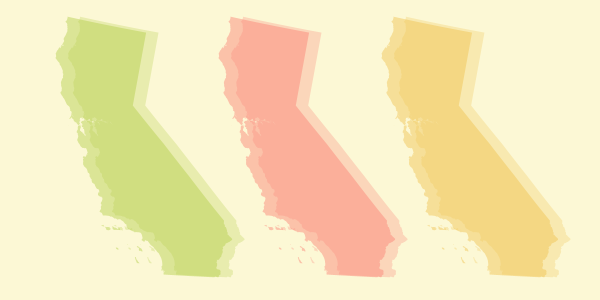Suche
Beiträge, die mit DataBrokers getaggt sind
Some people think the problem with mass surveillance is a kind of machine-driven, automated mind-control ray. They believe the self-aggrandizing claims of tech bros to have finally perfected the elusive mind-control ray, using big data and machine learning.
But you don't need to accept these outlandish claims – which come from Big Tech's sales literature, wherein they boast to potential advertisers that surveillance ads are devastatingly effective – to understand how and why this is harmful. If you're struggling with opioid addiction and I target an ad to you for a fake cure or rehab center, I haven't brainwashed you – I've just tricked you. We don't have to believe in mind-control to believe that targeted lies can cause unlimited harms.
And those harms are indeed grave."
https://pluralistic.net/2025/02/20/privacy-first-second-third/#malvertising
#USA #AdTech #DataBrokers #DataBrokerage #Privacy #BigTech #MassSurveillance #DataProtection
The thousands of apps, included in hacked files from location data company Gravy Analytics, include everything from games like Candy Crush and dating apps like Tinder to pregnancy tracking and religious prayer apps across both Android and iOS. Because much of the collection is occurring through the advertising ecosystem—not code developed by the app creators themselves—this data collection is likely happening without users’ or even app developers’ knowledge.
“For the first time publicly, we seem to have proof that one of the largest data brokers selling to both commercial and government clients appears to be acquiring their data from the online advertising ‘bid stream,’” rather than code embedded into the apps themselves, Zach Edwards, senior threat analyst at cybersecurity firm Silent Push and who has followed the location data industry closely, tells 404 Media after reviewing some of the data."
https://www.wired.com/story/gravy-location-data-app-leak-rtb/
#USA #DataBrokers #DataBrokerage #Surveillance #LocationData #GravyAnalytics
In 2025, eight new state privacy laws will take effect, making a total of 25 around the country. A number of other states—like Vermont and Massachusetts—are considering passing their own privacy bills next year, and such laws could, in theory, force national legislation, says Woodrow Hartzog, a technology law scholar at Boston University School of Law. “Right now, the statutes are all similar enough that the compliance cost is perhaps expensive but manageable,” he explains. But if one state passed a law that was different enough from the others, a national law could be the only way to resolve the conflict. Additionally, four states—California, Texas, Vermont, and Oregon—already have specific laws regulating data brokers, including the requirement that they register with the state.
Along with new laws, says Justin Brookman, the director of technology policy at Consumer Reports, comes the possibility that “we can put some more teeth on these laws.”
Brookman points to Texas, where some of the most aggressive enforcement action at the state level has taken place under its Republican attorney general, Ken Paxton. Even before the state’s new consumer privacy bill went into effect in July, Paxton announced the creation of a special task force focused on enforcing the state’s privacy laws. He has since targeted a number of data brokers—including National Public Data, which exposed millions of sensitive customer records in a data breach in August, as well as companies that sell to them, like Sirius XM."
https://www.technologyreview.com/2025/01/07/1109301/privacy-protection-data-brokers-personal-information/
#USA #Privacy #DataProtection #DataBrokers #DataBrokerage

What’s next for our privacy?
The US still has no federal privacy law. But recent enforcement actions against data brokers may offer some new protections for Americans’ personal information.Eileen Guo (MIT Technology Review)
What do these privacy violations have in common? They share a source of data that’s shockingly pervasive and unregulated: the technology powering nearly every ad you see online.
Each time you see a targeted ad, your personal information is exposed to thousands of advertisers and data brokers through a process called “real-time bidding” (RTB). This process does more than deliver ads—it fuels government surveillance, poses national security risks, and gives data brokers easy access to your online activity. RTB might be the most privacy-invasive surveillance system that you’ve never heard of."
https://www.eff.org/deeplinks/2025/01/online-behavioral-ads-fuel-surveillance-industry-heres-how
#Privacy #Surveillance #CyberSecurity #AdTargeting #DataProtection #DataBrokers #DataBrokerage #RTB
Venntel, through its parent company Gravy Analytics, takes location data from smartphones, either through ordinary apps installed on them or through the advertising ecosystem, and then provides that data feed to other companies who sell location tracking technology to the government or sells the data directly itself. Venntel is the company that provides the underlying data for a variety of other government contractors and surveillance tools, including Locate X. 404 Media and a group of other journalists recently revealed Locate X could be used to pinpoint phones that visited abortion clinics.
The FTC says in a proposed order that Gravy and Venntel will be banned from selling, disclosing, or using sensitive location data, except in “limited circumstances” involving national security or law enforcement."
#USA #FTC #LocationData #Venntel #Gravy #DataBrokers #DataBrokerage #DataProtection #Privacy #Surveillance
https://www.404media.co/ftc-bans-location-data-company-that-powers-the-surveillance-ecosystem/

FTC Bans Location Data Company That Powers the Surveillance Ecosystem
Venntel is a primary provider of location data to the government or other companies that sell to U.S. agencies. The FTC is banning Venntel from selling data related to health clinics, refugee shelters, and much more.Joseph Cox (404 Media)
Read more about what the new law does here: https://www.eff.org/deeplinks/2023/08/californias-delete-act-protects-us-data-brokers
#privacy #databrokers #CA

California's DELETE Act Protects Us From Data Brokers
When it comes to the reckless trade of our personal information, data brokers are the problem. These entities collect then sell personal information they’ve amassed on individuals with very little oversight.Electronic Frontier Foundation

